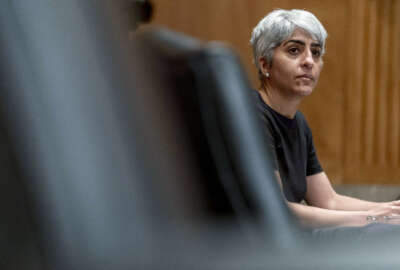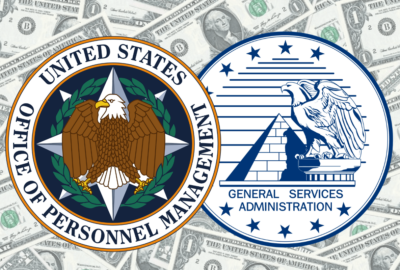
For newly empowered CHCO Council, the future of federal work is top of mind
The Chief Human Capital Officers Council has a new operational mandate, and it's been discussing "future of work" policies and challenges on an almost weekly basis...
Conversations about the “future of work,” and what it means for the federal workforce, are practically inescapable. It’s the top priority on the Biden administration’s new Presidential Management Agenda.
And it’s front and center for agency chief human capital officers, who have been meeting and discussing the topic on an almost weekly basis with the Office of Personnel Management.
OPM has spent the last year trying to reassert itself as a human capital leader in the federal community, and it’s bringing the Chief Human Capital Officers Council along with it.
“Whether its rapid hiring to meet our surging needs or transitioning to a hybrid work environment, which is what we’re in the midst of right now — and especially as we define the future of work — your perspectives have been and continue to be so very invaluable,” Kiran Ahuja, the OPM director and CHCO Council chairman, said Wednesday at the group’s annual public meeting.
It was the first public meeting since OPM reassumed control over the council earlier this summer.
“I want to use the occasion to say how very thrilled to have you back where you belong,” Ahuja added.
The staff, budget and administrative resources that supported the CHCO Council moved from OPM to GSA back in December 2019. It was one of the few, albeit small, pieces of the previous administration’s proposed OPM merger that it was able to accomplish on its own.
The council has spent the last year rewriting its charter, an activity that it hasn’t done since the council formed back in 2003, and it had a hand in helping the Biden administration craft new telework and remote work guidance and implement the vaccine mandate for federal employees, among other things.
The new charter, which is effective as of Wednesday, clarifies the council’s role and responsibilities. The council, for example, is supposed to share and identify best practices for promoting a “culture of continuous human capital learning and high performance” and embrace policies and strategies for “developing and supporting a modernized federal workforce and workplace.”
It’s also supposed to “support agency leaders in carrying out their responsibilities for selecting, developing, training and managing a diverse, inclusive, high-quality, productive workforce in accordance with merit system principles,” the new charter reads.
The charter also allows the council to bring in individuals from the other federal executive councils, such as members of the Federal Chief Information Officers or Chief Data Officers Councils.
“We’ve been working to strengthen our relationships with cross-agency councils; this is very important,” said Margot Conrad, the CHCO Council’s executive director. “I’m really looking forward to further collaboration on this front. When we think about the critical issues that we’re facing or thinking about the future of work, we need to be doing this collaboratively.”
The council also established a new executive steering committee, made up of CHCOs from five agencies and Conrad. The new steering committee is supposed to foster a better working relationship between the CHCO Council and OPM.
In its March report, the National Academy of Public Administration painted a picture of an underutilized CHCO Council, a group that rarely had an opportunity to advise OPM and serve as a consultative partner with the agency on federal workforce issues.
Meetings became infrequent during the pandemic, to the point where individual chief human capital officers took it upon themselves to organize more of their own meetings with their colleagues, often without OPM at the table, NAPA said.
The academy ultimately recommended OPM strike a better working partnership with the council and better use the members’ expertise and experience when working through tough workforce policy topics.
The new CHCO Council charter lets the panel establish other working groups and standing panels for the purposes of focusing on special workforce challenges that will last over the course of several years, transcend administrations or tackle emerging issues.
The council created a few of those groups this year to take on future of work and diversity, equity, inclusion and accessibility challenges.
The future of work group has been meeting almost weekly since March, the panel’s leader, Traci DiMartini, chief human capital officer for the General Services Administration, said. CHCOs in that group have been working with OPM and the administration on new telework, remote work and flexible workplace policies.
“We have been joined at the hip the past few months, along with many of my fellow CHCOs and even more importantly, their talented staff embedded across the entire government, to look at ways we can modernize the future of work in the federal service,” DiMartini said.
Anywhere from 60-to-80 people joined those meetings, and they shared feedback with OPM’s pay and leave experts on policies, guidelines and other information that DiMartini said will “transform the way government works.”
“The CHCOs, specifically through the future of work working group, have proved invaluable into the guidance and the resources and the whole stage of how we’re talking about not only moving into this hybrid work environment but also the future of work and what that looks like,” Ahuja said.
That work will continue in 2022, particularly as agencies prepare to bring more employees back to their offices, DiMartini said.
The council’s diversity, equity, inclusion and accessibility working group has been talking through the president’s June DEIA executive order. That group has helped agencies stand up specific teams to implement the new order, and it identified more than 40 promising practices that departments can use to advance diversity and inclusion efforts within their organizations, said Jamesa Moone, the chief human capital officer for the U.S. Trade Representative and chairman of the Small Agency Human Resources Council.
Copyright © 2025 Federal News Network. All rights reserved. This website is not intended for users located within the European Economic Area.
Nicole Ogrysko is a reporter for Federal News Network focusing on the federal workforce and federal pay and benefits.
Follow @nogryskoWFED
Related Stories




